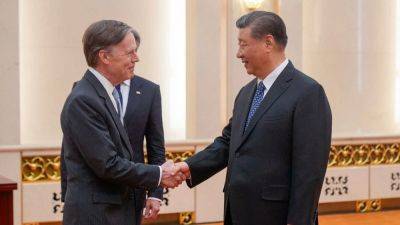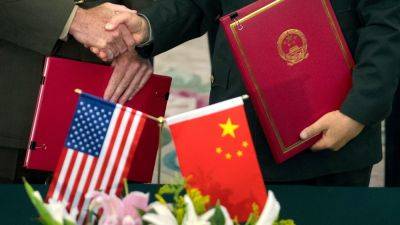As China’s Pressure on Taiwan Rises, Departing U.S. Envoy Urges Steady Hand
Near the end of three years as the United States’ chief representative in Taiwan, Sandra Oudkirk has some parting advice: Avoid panic about China’s combative language and moves, but don’t grow numb to the risks.
Ms. Oudkirk has been Washington’s de facto ambassador to Taiwan over a time when the island democracy has become a crucible of tensions between Washington and Beijing. China claims that Taiwan is its territory and must accept unification, by armed force if leaders in Beijing decide that is necessary.
At times, debate among Taiwanese and American politicians, officials and experts has taken on some tension as well, over which mix of tactics — what military purchases, what reassuring or unyielding words to Beijing, what steps with fellow democracies — could best reduce the risks of war.
Ms. Oudkirk, who leaves her post in Taipei early next month, suggested that Taiwan and its partners needed to find a steady path, avoiding both hysteria and complacency.
“These are questions that we get all the time about how dangerous Taiwan is — you know, that Taiwan is the most dangerous place in the world,” she said, referring to talk of imminent crisis or war. “Sometimes the sound bites really don’t capture the full reality.”
But she added of China: “When a government, a country, a leader tells you what they’re thinking and tells you what they’re planning, you should listen to what they’re saying.”







